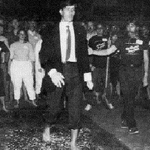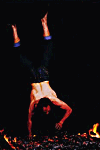fxmarkets
Established member
- Messages
- 834
- Likes
- 50
ianhowlett said:“Guess and click” could apply to any method of trading. What’s a trading system doing? Ultimately, unless it’s wired up to a crystal ball, it’s guessing! Those guesses might be informed by a set of rules, but they’re not going to be correct anywhere near 100% of the time, since financial theorists have found that markets follow something roughly approaching a random walk.
Since you have not yet taken the course, and other readers of this discussion may not have done so, I would like to give people the opportunity to base their judgement on a fuller version of the system than the free trial allows.
I will therefore send a voucher code, redeemable for a full module, to the first five Trade2Win forum readers who email me at [email protected] , in exchange for your constructive feedback.
Ian Howlett
CEO, Faculty of Trading Ltd.
www.facultyoftrading.com
hmmm no doubt this blinkered view is obtained due to poor concentration , but again if Stephan Bisse is a "top end of knowledge" pro trader then he would know it aint random walks best served with a trading policy of guess n click and toss in the use of stochastics and the like . Why not educate traders by the use of teaching them Professional Speculation Theory then move on to develop intuition through extensive and continual practice, no guessing involved , and to be honest thats what I would expect from a top end knowledgeable Pro trader .
Agin thanks for your time , no doubt you'll obtain constructive feedback from other members with your offer.
Cheers Ian.
fx.


